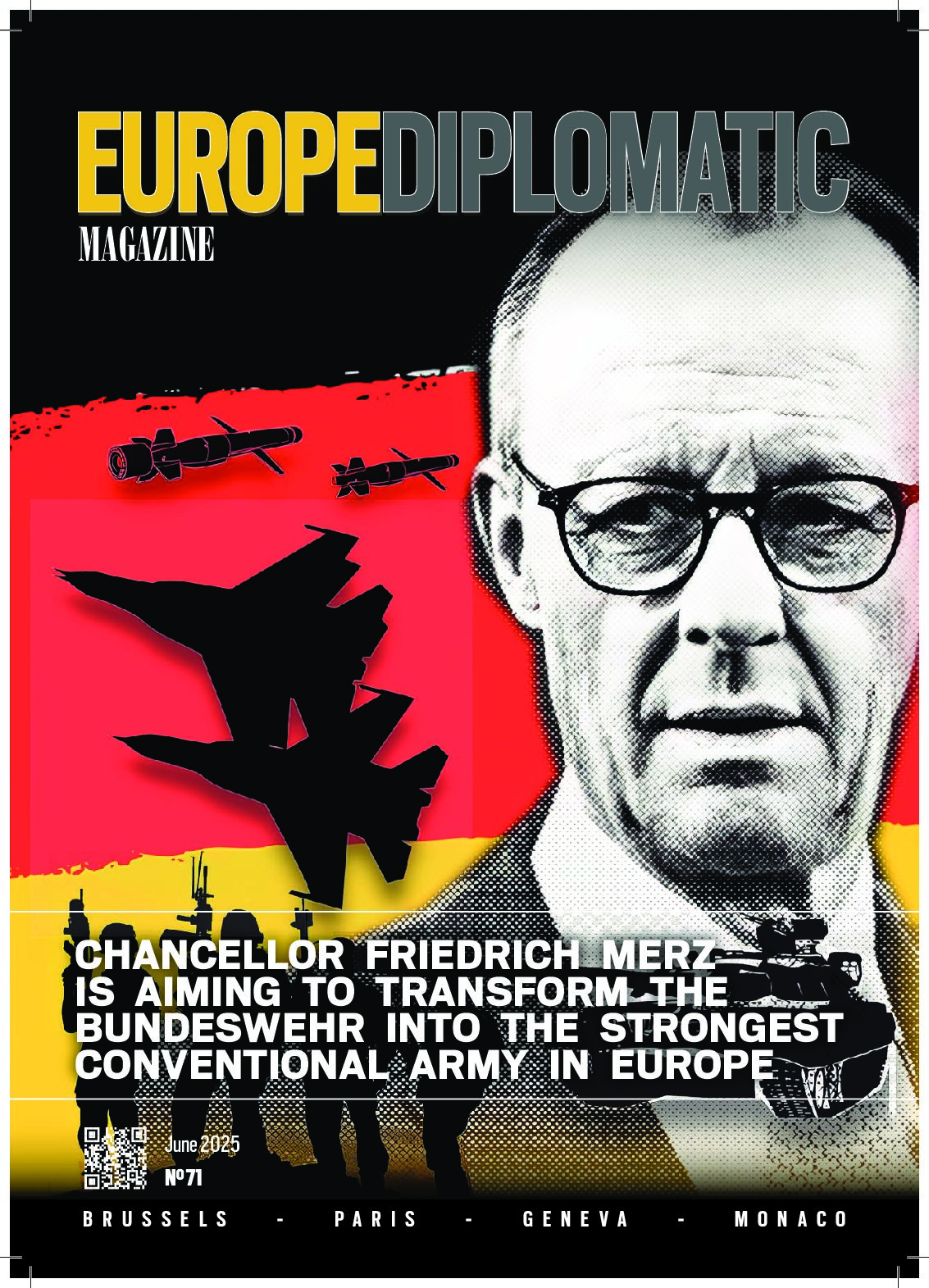Literature and musical comedy (plus a few movies and computer games) have given us a wealth of fictional place names. There’s Ruritania, for instance, first created in Anthony Hope’s 19th century novel, The Prisoner of Zenda, and still often bandied about as a name for a Middle or East European country that doesn’t exist. Or how about Bordaria – familiar to fans of Belgium’s TinTin? There’s Lichtenburg, where Ethel Merman supposedly was in the musical, Call Me Madam; the aptly-named Vulgaria of Chitty Chitty Bang Bang fame or Sir Winston Churchill’s Laurania. And, of course, there’s always the kingdom in Aristophanes’ comedy, The Birds, known as Nephelokokkygia (Νεφελκοκοκυγιά) which literally means the rather more familiar-sounding Cloud Cuckoo Land. Cloud Cuckoo Land is a name often used, in a somewhat derogatory way, for fantasy places or situations, without knowing that Aristophanes created it in 414 BCE for his kingdom of birds, led by a Hoopoe who has , it seems, been transformed from Tereus, the legendary king of Thrace (and, incidentally, the son of Mars and Bistonis, who is, in fact, a lake. Those Ancient Greeks got up to some very strange acts). Among this plethora of fictional kingdoms, one might be tempted to place Transnistria, which is almost equally unfamiliar to (and unvisited by) most people. But the difference, of course – and it’s a very important one – is that Transnistria actually exists. Officially, it’s called the Pridnestrovian Moldavian Republic (PMR) and it occupies the narrow strip of land between the river Dniester and the Ukrainian border and is internationally recognized as part of Moldova, although its citizens deny this.
Wired.com describes Transnistria as a “thin strip of land wedged between Moldova and Ukraine. It is home to more than 500,000 people and has a parliamentary government, a standing army, and its own currency. It has all the trappings of an independent nation—but isn’t.” In fact, it is only recognised at all by three similarly disputed “countries” that are similarly not recognised by the majority of countries. Where does that leave its leader, Vadim Krasnoselsky? He was elected in 2016 as the President of Transnistria after serving as Speaker of the Transnistrian Supreme Council (effectively the Parliament) with more than 62% of the votes. It was quite an impressive victory, given that there were six candidates. But Transnistria is an odd place, where voters hold the local justice system in low regard: two candidates with roots in the judiciary did especially badly: Aleksandr Deli, the Prosecutor General, got just over 0.5% of the vote, while Vladimir Grigorev, the former head of the Constitutional Court, did little better, with 0.7%.
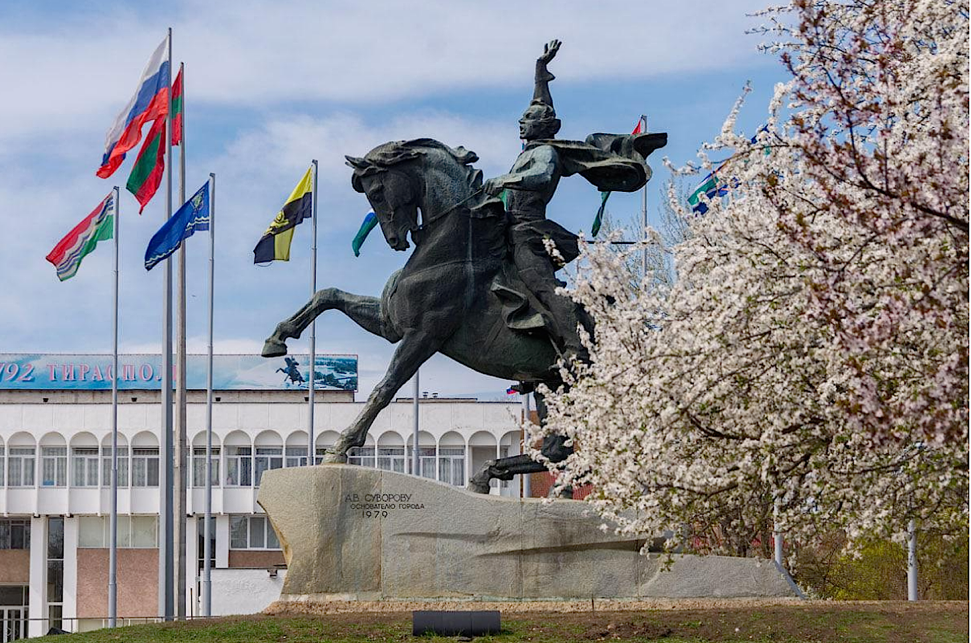
What do we know about Krasnoselsky? Apparently, he believes in constitutional monarchy, which is in itself strange for a man whose country (if it really is a country) still follows the style of the old Soviet Union. He was born in the Zabaykalsky District of what was then the Russian Soviet Federative Socialist Republic. According to Wikipedia, the Zabaykalsky District “is an administrative and municipal district or ‘raion’, one of the thirty-one in Zabaykalsky Krai, Russia. It is located in the southeast of the krai and borders with Borzinsky District in the north (and) Krasnokamensky District in the east.” Krasnoselsky graduated from the Military Aviation Engineer Higher School in Kharkiv in 1993 and joined the Transnistrian Security Service, rising to become a high ranking official in the Ministry of the Interior. Rather oddly, then, he says he favours the idea of constitutional kings (and, presumably, queens). He has already reinstituted the traditional New Year balls, where he has been seen dancing with his wife, Svetlana Krasnoselskaya, a philologist and teacher of Russian.
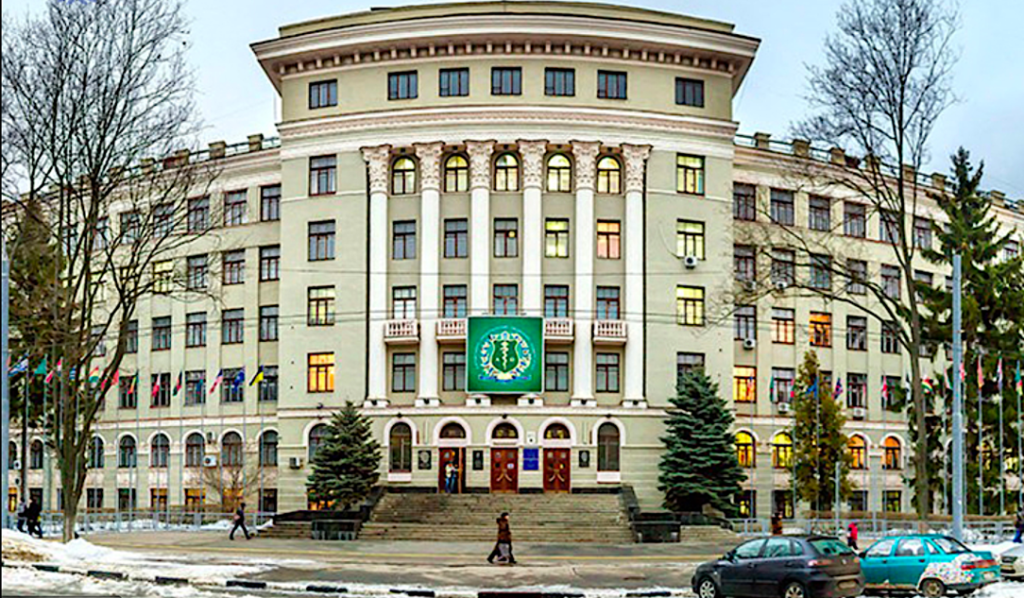
During his campaign to become Transnistria’s third president, he is claimed to have said: “I am a monarchist by nature. From my youth I had strictly built monarchical views. I am a supporter of monarchism, limited constitutional monarchism, and take the experience of the Russian Empire as a basis.” He would presumably get on well with all those strange British people who drape themselves with Union flags and sit out on wet pavements in the rain for days on end, just to get a glimpse of some royal person who is due to pass that way. He has even suggested raising statues of famous Tsarist-era Russian heroes, such as Generalissimo Alexander Suvorov and one-time Prime Minister Pyotr Stolypin. Do they deserve such honour? No, this is not a quiz question; few people other than Krasnoselskaya are likely to know the answers. Suvorov was a commander during the Russo-Turkish war of 1787-1792, winning several notable victories for Tsarist Russia. He also put down a Polish uprising in 1794, so he’s unlikely to have been popular in Warsaw, which he stormed, but he was undoubtedly a hero in Russian royal circles.
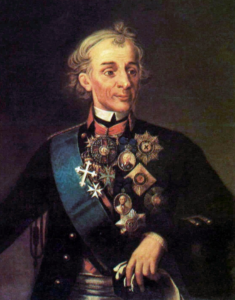
Stolypin was born in Dresden, Germany, to a high-ranking Russian family of aristocrats. He granted peasants the right to own land – an unpopular move with his reactionary colleagues although welcomed by peasants, of course – but was suspected by the Bolsheviks of being a German agent. He imposed martial law in response to revolutionary unrest and was shot in Kyiv by Dmitry Bogrov, a former secret member of the Tsar’s secret police, the Okhrana, who had seemingly (if unconvincingly) embraced revolutionary Socialism. However, according to the author Aleksandr Isayevich Solzhenitsyn, he killed Stolypin at the behest of Russia’s extreme reactionaries and landowners as a punishment for his agrarian reforms. Even so, he had changed the way the Duma operated in order to favour the nobility and weaken the power of the lower classes, so he’s an odd hero for a supposed Socialist. He was shot while attending a performance of Rimsky-Korsakov’s opera, The Tale of Tsar Saltan, at the Opera House in Kyiv (still a splendid edifice that’s well worth visiting), despite having been warned not to attend. For all his record of very limited reforms, he still seems a strange choice for a statue in a country (sort of) that still includes the hammer and sickle on a red background as part of its flag.
RAISE THE FLAG! (NO, NOT THAT ONE)
Krasnoselsky certainly seems to be an odd mixture. He eagerly took part in National Unity Day, even though it commemorates an event that happened while Russia was still ruled by a Tsar. Indeed, it was celebrated nationally across Russia before the October revolution. Vladimir Ilyich Lenin would have hated it. Krasnoselsky told journalists “The roots of the tradition of celebrating the Day of National Unity go back to the distant past. The year 1612. The people’s militia led by Pozharsky and Minin liberated the capital of Russia, Moscow, from the Polish invaders. It was then, with victory, that Pozharsky entered the liberated Kitai-Gorod with the Kazan Icon of the Mother of God.”
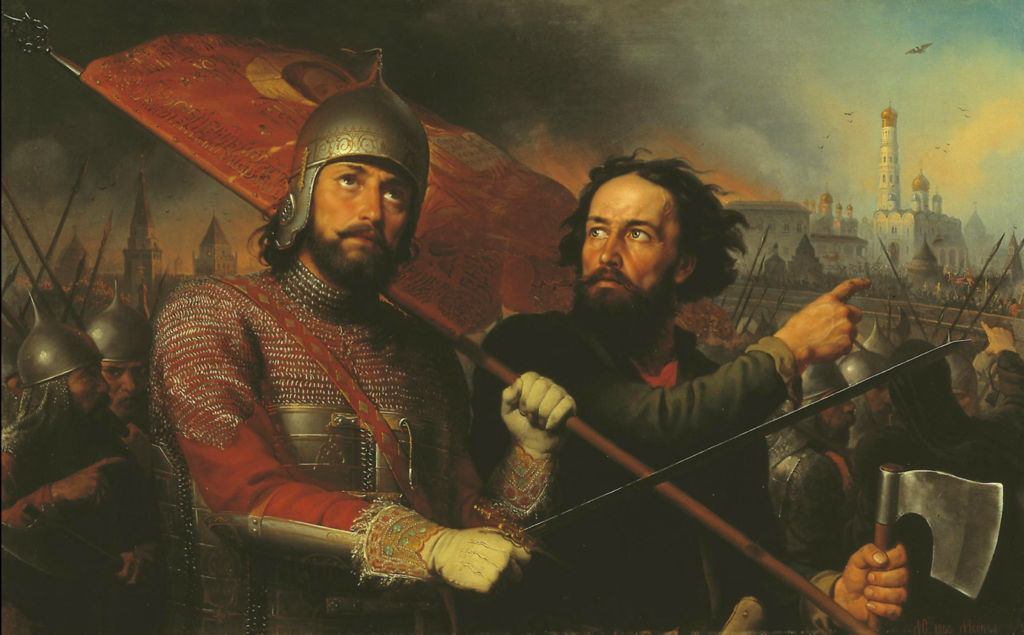
None of those remarks could have come from Lenin, Leon Trotsky, or even Joseph Stalin, who had attended the Tiflis Theological Seminary and whose mother had wanted him to become a priest. Krasnoselsky is clearly cut from very different cloth. But so is Transnistria, of course. Despite it clinging to the old ideas of the Soviet Union in many ways, its independence isn’t even recognised by Moscow, let alone other members of the United Nations. There are still elderly people in Russia who raise the old Soviet flag in Moscow and long for a return to the old days – I stood and watched them gather outside a metro station there once – but most people seemed to ignore them. Meanwhile Transnistria waves its own version of the hammer and sickle while its president looks to the days of tsarism for inspiration. That did not stop him, during his inauguration speech, from promising to integrate Transnistria into the Eurasian Economic Union, a free trade zone created by Russia whose member states include Russia, Armenia, Belarus, Kazakhstan and Kyrgyzstan. It could not easily be confused with the European Union.
According to the agency Novosti Pridnestrovya, Krasnoselsky’s speech, back in April 2020, was mainly concerned with the Russia that existed before Lenin made his historic train journey from Zurich to what was Petrograd’s (now St. Petersburg’s) Finland Station and ultimate control of the world’s first Communist state. Indeed, the speech referred back to a much more ancient past. “If we take the history of Pridnestrovie,” he said, “then it – the history of our land, our cities and regions – is inextricably linked with the history of Russia – the Russian Empire and the Soviet Union.” It’s clearly the earlier history, however, that was in his mind when he spoke about the region’s capital. “Tiraspol owes its appearance on the map to Catherine II and then Field Marshall Suvorov,” he told journalists. “The city was created as a military garrison; the construction of the Middle Fortress began. All these have become symbols of Tiraspol.”
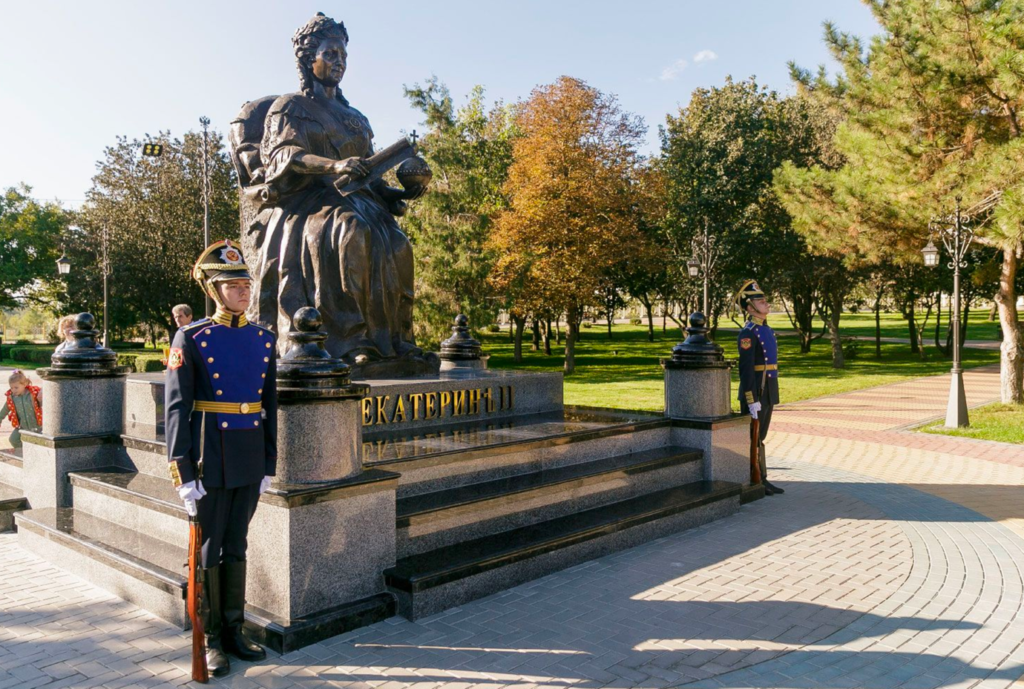
And this is where it begins to get rather strange for a Socialist republic. “It is enough to look at the monument to Catherine,” he said. “In the arch there are eternal sentries, the eternal guard of Catherine Park – the Suvorov Grenadiers, who are also the first residents of Tiraspol.” Catherine the Great is currently the subject of a dramatized biographical movie on British television, in which it is claimed that she was deeply involved in the death of her husband, Peter, although that was already well known. Politics could be fatal back then.
Peter was neurotic, cruel, probably alcoholic, possibly impotent and incredibly stupid. He was also German by birth and hated Prussia’s long-term enemy, Russia, which meant he was not the best person to be Tsar. On the other hand, Catherine, although also German by birth, was devoted to her adopted country, learning its language and converting to Eastern Orthodoxy, and firmly committed to improving the Russian way of life. She had first met Peter when she was ten and hated him on sight. He was ten years old at the time, already a heavy drinker and he played with toy soldiers, rather than with her. During Peter’s lifetime Catherine had the first of at least three lovers, one of whom (not the first) fathered the child who would become the heir to the throne.
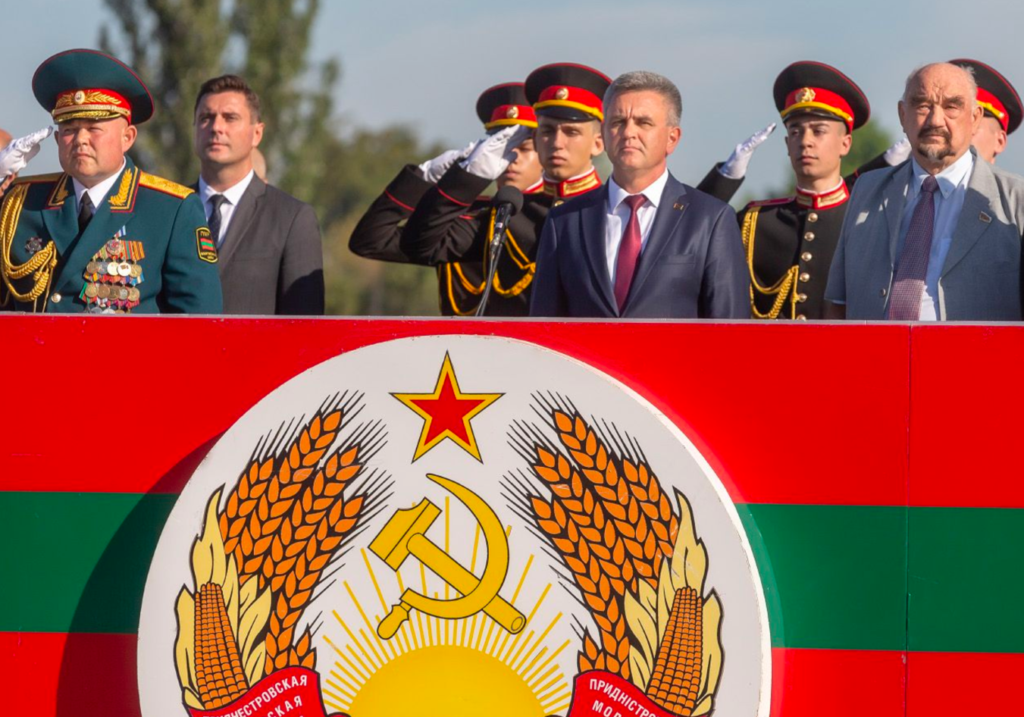
Catherine’s mother, Johanna Elisabeth von Holstein-Gottorp, was banned from Russia for spying on behalf of Prussia’s King Frederick II. In fact, Catherine’s sharing of the throne with her husband lasted only for half a year. On a night in July 1762, Catherine was informed that one of her co-conspirators had been arrested by her husband, who was residing in a neighbouring palace at the time, and that all their plans to displace him must be brought forward dramatically. The following day, she delivered a speech to the Ismailovsky Regiment, asking them to protect her from her husband. She and the regiment then went to the Semenovsky Barracks where a well-briefed clergy were waiting to ordain her as sole Empress. She had Peter arrested and forced him to abdicate. Eight days later he died, allegedly of an illness but almost certainly assassinated by one of Catherine’s court favourites. Politics was a rather forceful occupation in those days. Even so and despite her reforms, Catherine the Great seems an odd heroine for a man who is supposed to admire the Soviet way of doing things.
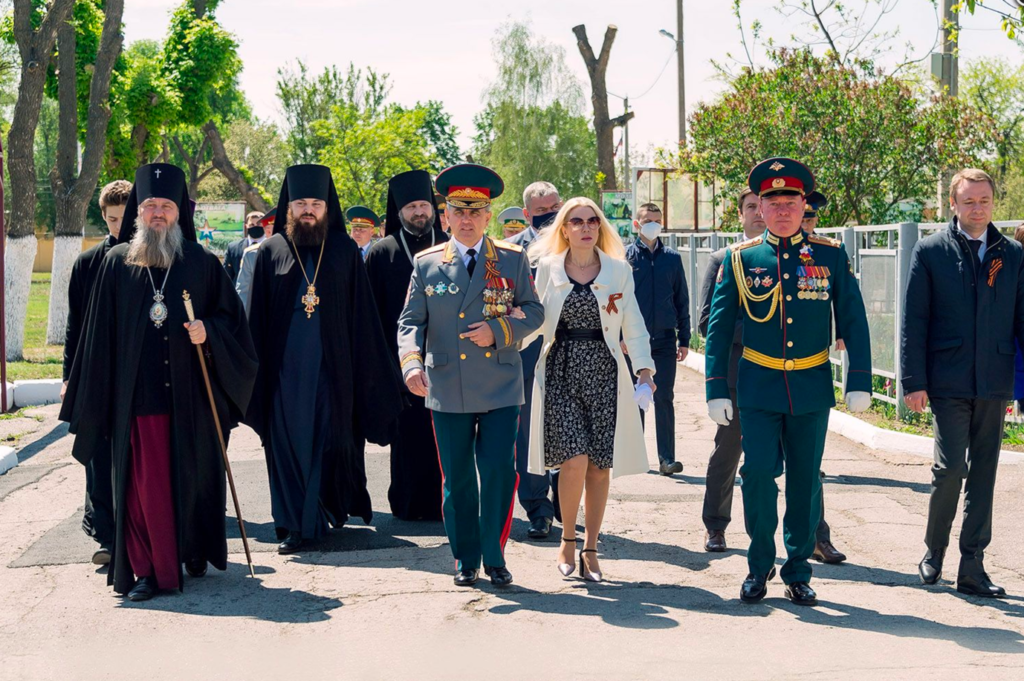
GLORIOUS PAST; FOGGY FUTURE
In case you think this means that Krasnoselsky lacks devotion to Russia’s Soviet past, you would be wrong. He has praised Russia’s role in defeating Hitler’s Nazis, for instance. “It is the Russian world that has defeated, overthrown the fascist plague. Therefore, the Russian world has always been the saviour; it enables all nations to live safely in any historical space,” he told a television programme. The history of Pridnestrovie (Transnistria), he told the studio audience, is inextricably linked to the history of Russia. “We have experienced together both tragedies and victories. And so it will be in the future.” Georgy Zhukov would have been proud of such a comment; he was often angered by the memoirs of Wehrmacht generals who blamed Germany’s defeat on errors by Hitler, Russian weather or the Red Army’s weight of numbers. In his book ‘Stalin’s General’, Geoffrey Roberts was on Zhukov’s side. “What none of them would admit, according to Zhukov,” he wrote, “was that superior Soviet generalship was the primary reason they had lost the war.” That is clearly a view that Krasnoselsky would share.
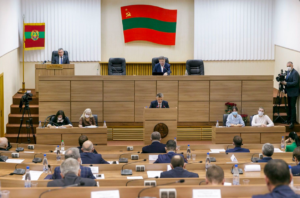
Krasnoselsky served as a member of the Supreme Council of Transnistria , as its sixth Speaker and then as the seventh Minister of the Interior. Leaving school in 1987 he began to study in Odessa but gave it up after a year in favour of the Military Aviation Engineer Higher School in Kharkiv, graduating in 1993. He took a degree in law in 2002. As leader of a pro-Russian country whose independence isn’t even recognised by Russia, he made his first major state visit to Sukhumi for the Independence Day celebrations in Abkhazia, a partially recognised state in the South Caucasus which is generally seen as part of Georgia, albeit a breakaway part, much as Transnistria is seen as a part of Moldova. Unlike, Transnistria, however, which is only recognised as independent by Abkhazia, the Republic of Artsakh and South Ossetia (none of them recognised themselves by the UN) the independence of Abkhazia is recognised in a few places: Russia, Venezuela, Nicaragua, Nauru and Syria. I’m sure you will begin to detect a pattern here.
During a visit to Russia in December 2020, Krasnoselsky held talks with Konstantin Kosachev, a Russian politician and diplomat who is a senator at the Federation Council, the Duma’s Upper House, and who chairs its Foreign Affairs Committee.
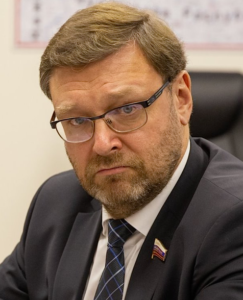
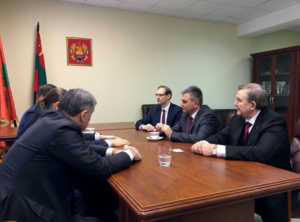
During their discussion, Kosachev noted that on the eve of 2021, the geopolitical situation demands “closer interaction with the Pridnestrovian side”. Music to the ears of Krasnoselsky, I should imagine, whatever Kosachev may think of Catherine the Great.
He also met with Dmitry Kozak, Deputy Chief of Staff of the Presidential Administration of the Russian Federation. Krasnoselsky assured Kozak that he “appreciated the existing systemic nature of Russian-Pridnestrovian interaction and expressed special gratitude to the leadership of the Russian Federation for the long-term successful peacekeeping operation that has maintained peace and stability on the Dniester for more than 28 years”. Don’t worry, Mr. Krasnoselsky: they’re not going to go away any time soon.
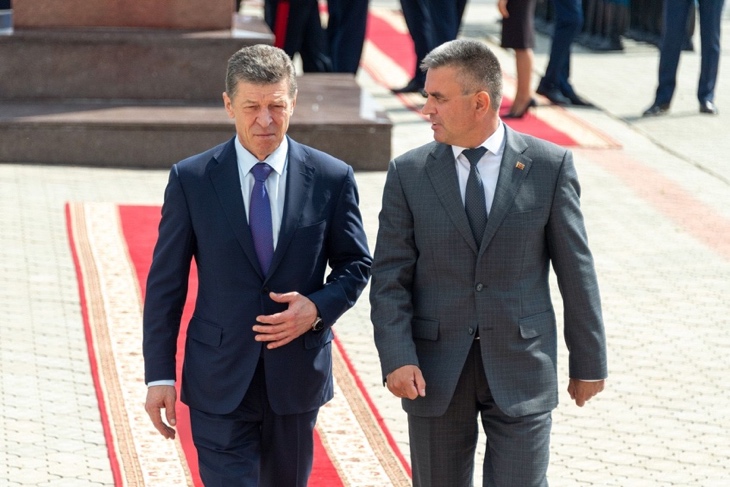
The President took the opportunity to meet with members of the Duma’s lower house, where discussions touched upon such issues as providing Russian compatriots who live in the PMR with various forms of social and humanitarian support and the possibility of making it easier for Pridnestrovians to obtain Russian citizenship, among other things. Krasnoselsky made the most of his visit to Moscow, taking the opportunity to hold discussions with Farit Mukhamestshin, who is Deputy Chair of the Federation Council’s Committee on International Affairs. Much of the discussion centred on relations with Moldova and the tensions that remain between Tiraspol and the Moldovan capital, Chișinău, which Krasnoselsky accuses of not fulfilling its obligations to Transnistria. Russia, of course, enjoys stoking up resentment all round because it strengthens Moscow’s hand in future negotiations and because it helps to polish up Vladimir Putin’s image as an international peacemaker.
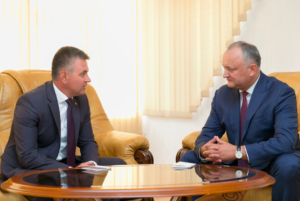
That is not how he is seen by Maia Sandu, the new President of Moldova, who defeated the pro-Russian incumbent in November’s election (her predecessor stood accused of embezzlement and her opponents made accusations against her, too. It’s how elections are conducted there). Her election platform called for a balancing of the ex-Soviet country’s ties with Moscow and said the Russian troops should be replaced by civilian observers from Europe. Russia has some 1,500 troops in Transnistria. On a Russian news site, RBC, Sandu told viewers that those troops should leave. “Russia says that the Operational Group of Russian Forces (OGRF) guards ammunition depots here,” she said, “but there are no bilateral agreements on the OGRF and on the weapons depots. These weapons depots are a big problem for us. It’s dangerous. These weapons need to be removed and the OGRF needs to be withdrawn.” Sandu is more dynamic and less pro-Moscow than her predecessor but it’s unlikely that Putin is listening. Indeed, the Kremlin has said that any change to the OGRF would “destabilize” Transnistria. RBC has estimated that around 1,000 of the Russian troops are guarding more than 20,000 metric tonnes of ammunition at a decommissioned depot in Transnistria.
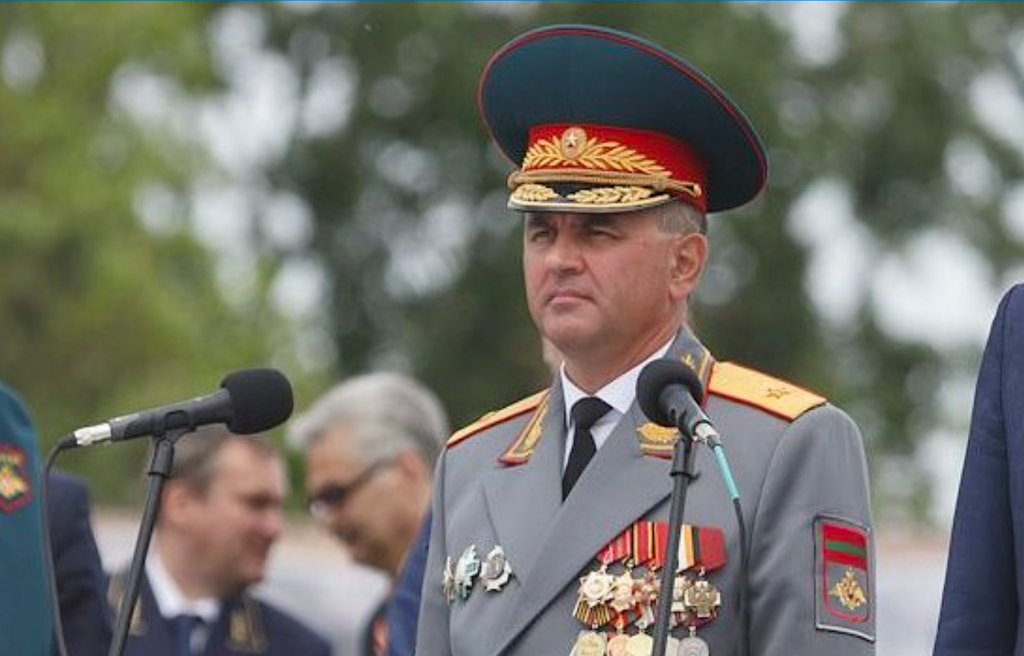
Additionally, there are around 400 “peacekeepers” deployed in a demilitarised zone as part of a Moldovan-Transnistrian-Russian monitoring commission. “There’s a 1992 agreement on peacekeepers,” Sandu said. “We believe that there’s no threat of renewed military operations on our territory. We believe that this mission should be transformed into an OSCE (Organization for Security and Co-operation in Europe) civilian observer mission”.
GETTING A PART IN ‘THE GODFATHER’?
Sandu is not the only leader to emerge from an election in which both sides had been accused of financial impropriety. Before the vote, Krasnoselski faced the then incumbent, Yevgeny Shevchuk, across a TV studio and instead of debating, delivered a monologue before walking out of the studio. He told his opponent on this very public platform “Your suggestion to have a private conversation between us loses any sense, until you, Mr President, reveal the activities of your business ventures; until you return to the state coffers all the gas money stolen through off-shore companies; until you reveal the names of all those who are guilty.” Dynamic stuff, to which he added this parting line: “A thief should be in prison.”
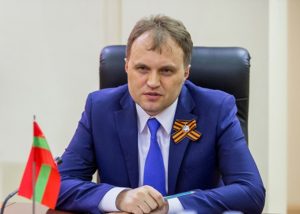
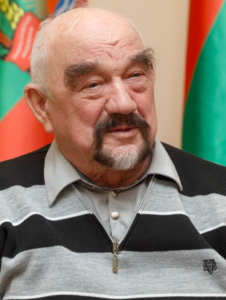 However, Shevchuk avoided prosecution and took up residence in, of all places, Moldova. The Jamestown Foundation, in an on-line report, explained Transnistria’s ongoing political upheavals like this: “As the new leadership in Transnistria consolidates power in what is an intra-elite power struggle, the Russian State Duma approved a declaration on what it views as negative developments around Transnistria. Specifically, the Duma resolution blames Moldova and Ukraine for allegedly jeopardizing the security and stability of the region by introducing joint checkpoints on the Transnistrian segment of the Moldovan-Ukrainian border and by obstructing Russia’s regional military presence.” This was stated in the Russian State Duma. In the Foundation’s Eurasia Daily Monitor, it continues: “After winning the “presidential” race in Transnistria last December Vadim Krasnoselski—who is backed by the most powerful local oligarch, the head of Sheriff Company, Victor Gusan—has been seeking to do away with any potential challengers. Despite losing the election to Krasnoselski, former ‘president’ Shevchuk has retained some popular support and remains the leader of the weak but vocal political opposition in Transnistria.” In other words it’s all a bit of a mess, so watch this space. The fact that Shevchuk was able to escape from Transnistria without prosecution suggests the involvement of Russia, still pulling the strings (or at least quite a few of them) behind the scenes. But there again, some of the charges against Shevchuk would also cast a shadow over Russia’s Deputy Prime Minister Dmitry Rogozin, who serves as Putin’s special envoy for Transnistria. Furthermore, it’s widely believed that Transnistria’s leaders have only been able to get their hands in the till with the help of Moldova and/or Ukraine. As the poet Robbie Burns said of the Scottish aristocracy when the country became united with England, “Such a parcel of rogues in one nation.” Or in this case, three nations. OK; two and a half, then.
However, Shevchuk avoided prosecution and took up residence in, of all places, Moldova. The Jamestown Foundation, in an on-line report, explained Transnistria’s ongoing political upheavals like this: “As the new leadership in Transnistria consolidates power in what is an intra-elite power struggle, the Russian State Duma approved a declaration on what it views as negative developments around Transnistria. Specifically, the Duma resolution blames Moldova and Ukraine for allegedly jeopardizing the security and stability of the region by introducing joint checkpoints on the Transnistrian segment of the Moldovan-Ukrainian border and by obstructing Russia’s regional military presence.” This was stated in the Russian State Duma. In the Foundation’s Eurasia Daily Monitor, it continues: “After winning the “presidential” race in Transnistria last December Vadim Krasnoselski—who is backed by the most powerful local oligarch, the head of Sheriff Company, Victor Gusan—has been seeking to do away with any potential challengers. Despite losing the election to Krasnoselski, former ‘president’ Shevchuk has retained some popular support and remains the leader of the weak but vocal political opposition in Transnistria.” In other words it’s all a bit of a mess, so watch this space. The fact that Shevchuk was able to escape from Transnistria without prosecution suggests the involvement of Russia, still pulling the strings (or at least quite a few of them) behind the scenes. But there again, some of the charges against Shevchuk would also cast a shadow over Russia’s Deputy Prime Minister Dmitry Rogozin, who serves as Putin’s special envoy for Transnistria. Furthermore, it’s widely believed that Transnistria’s leaders have only been able to get their hands in the till with the help of Moldova and/or Ukraine. As the poet Robbie Burns said of the Scottish aristocracy when the country became united with England, “Such a parcel of rogues in one nation.” Or in this case, three nations. OK; two and a half, then.
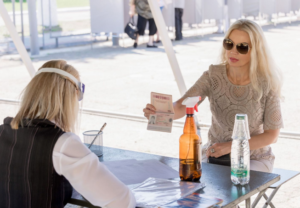
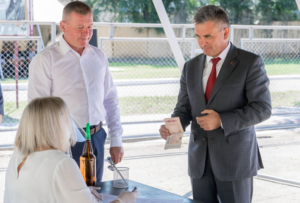
The whole sorry affair falls into the same unhappy category as Russia’s annexation of Crimea and its creation of the supposed Donetsk People’s Republic (DPR) in eastern Ukraine. Incidentally, the DPR is not only not recognised in Kyiv but even Russia sees it as part of Ukraine. In reality, it comes down to pinching sympathetic bits of countries that are unsympathetic to Russia and making them Moscow proxies. Russia certainly plays a big part in Transnistria and Krasnoselsky has promised to integrate it into the Eurasian Economic Union, even though most of Transnistria’s exports go to the EU and the fact that it has no border in common with Russia. His promise has been compared with Sandu’s promise to integrate Moldova into the EU: effectively undeliverable. Russia remains the bastion against westernisation for former Soviet states. Whatever sort of regime Putin is now running, it is a very far cry from the “Dictatorship of the Proletariat” described by Lenin in “The State and Revolution” in 1917. That, he wrote, could only be achieved through violent revolution and Russia’s current oligarchy is nothing like he imagined for Communist Russia. It seems unlikely to emerge in Transnistria, either, under a president who idolises Catherine the Great. But there again, Krasnoselski had had the backing of Transnistria’s biggest company, Sheriff, which has fingers in a great many pies, albeit those on the relatively small shelf of Transnistria. And Sheriff also supported his predecessor at one time. Since the governance of Transnistria seems to run rather like events in the 1972 film, The Godfather, it would be as well to recall the words of Don Vito Corleone, played by the inimitable Marlon Brando: “A friend should always underestimate your virtues and an enemy overestimate your faults.” That could apply to Putin as well as to Krasnoselski.
